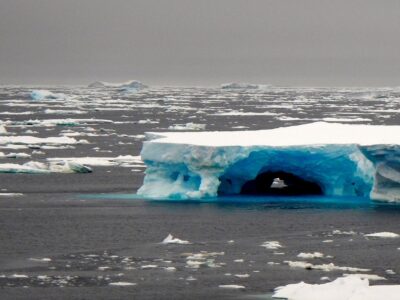Last week, EPA Administrator Scott Pruitt provided us with additional insight into his views about climate change. According to Lisa Friedman’s NY Times piece entitled, “How to Read Between the Lines When Scott Pruitt Talks About Climate Science”:
“Pruitt, the administrator of the Environmental Protection Agency, suggested this week that climate change might not be a danger for humanity. During an interview Tuesday with KSNV television of Las Vegas, Mr. Pruitt said that rising global temperatures are “not necessarily a bad thing” and that “humans have flourished’’ during times of warming trends. His comments represent a new wrinkle in Mr. Pruitt’s history of questioning the established science of climate change. At the E.P.A., Mr. Pruitt has championed the elimination of policies intended to mitigate climate change. He also has long expressed doubt about the role of humans in rising global temperatures, despite the scientific consensus that human activity is the dominant cause of climate change.”
It’s true that no one can predict whatever comes next, and dating back to the time of Malthus, scientists have erred when using straight line projections to model the future. Malthus predicted that overpopulation would result in mass starvation. He did not predict the breakthroughs we have enjoyed due to the technology of food production. When the Club of Rome produced its mid-1970s work, The Limits to Growth, those who adhered to these principles were termed “neo-Malthusian”. The follow up to that report, Mankind at the Turning Point, provided more hope for the future if we took our environmental problems more seriously and applied human ingenuity to their solution. Efforts to model and predict the future are always difficult, but often useful even if their projections are off. Malthus’ predictions were important in building human understanding of the finite nature of this planet. For some reason, some people act as if our planet’s resources are infinite. The earth’s future may be difficult to model, but pretending that humans can’t damage the planet ignores the past, the present and the future.
Human imagination may be infinite, but the earth is a fixed physical phenomenon. I believe that climate change and all human impacts on our planet can be managed, but only if they are understood and effectively acted upon. The market can be counted on for some of those actions, but not all of them. In the case of food, I am not sure we would have developed the technology we needed without U.S. government-funded land grant colleges and the work of thousands of public agricultural extension agents. In the case of climate change, we need better data and better models. We need to more precisely understand and anticipate climate impacts. We also need more work on technology to decarbonize our economy. We are not going to get new knowledge and new technology by pretending there is no problem. We are wasting time and effort defending what we already know, instead of devoting time and effort to learning what we need to know.
While Pruitt and Trump are heading in the wrong direction, environmental advocates are far from perfect. We need to stop proposing symbolic and politically unsellable solutions to the climate change crisis. We are also not going to build the political support we need to understand and manage the problem by asserting that climate change requires that we reduce population and change our lifestyles. The conclusions drawn by climate science are scary. The possible impact of sea level rise and extreme weather events, along with changes in rainfall patterns, can easily disrupt our food supply, energy supply, infrastructure and communities. But turning off or slowing down the economy is not a real option. The billions of people in the developing world won’t allow it, and the billions in the developed world can’t really imagine it. American families are not giving up their SUVs, smart phones or climate control. Demonizing the people making money off of fossil fuels may satisfy some symbolic desire for justice, but those may well be the same people we need to build the renewable energy based economy. The fossil fuel business will eventually go the way of the horse and buggy. Intelligent investors, and even the new Saudi Arabian leader, understand that.
But Scott Pruitt is a creature of the fossil fuel industry, and he is not from the forward-thinking part of the business that knows renewable energy will eventually take over. Pruitt’s ridiculous assertion that climate change is a good thing is beyond absurd. Perhaps he thinks we should be grateful that he is accepting the fact of climate change, although he probably assumes we are over-reacting to it. Listen Mr. Administrator: we have invested trillions of dollars in homes, farms and infrastructure for the climate we inherited. Climate change at the rapid pace now underway will be a costly, painful and relentless disaster. It’s not something we should be inviting but something we should be avoiding. Adapting to climate change will be very expensive. It will cost far more if we make no effort to mitigate it. Humans have flourished when we have intelligent leadership that addresses threats and knows how to seize opportunities–not when they wish away problems.
There may be some method to Pruitt’s madness, if his goal is to have the Supreme Court overturn its own decision that greenhouse gases are dangerous pollutants that must be regulated under the 1970 Clean Air Act. This decision dates back to 2007 and as David Stout of the New York Times wrote at that time:
“The tone of the majority opinion seemed to suggest that the agency would face a high barrier in arguing that greenhouse gases are not harmful. Justice Stevens alluded extensively to scientific findings in recent years attesting to the dangers of the gases, and he noted that the plaintiffs’ affidavits detailing those dangers were not contested.”
Perhaps Pruitt hopes to reopen the case by arguing that science has advanced and we now know that global warming is caused by greenhouse gases, but that a warmer planet is not an endangered planet, it’s a better one. If that is his game, I can’t imagine that even a more conservative Supreme Court is going to allow this kind of nuttiness to gain a hearing. First, the Court is always reluctant to overturn its own decisions since it undermines its authority; and second, science and common sense should be enough to counter the argument that global warming is a good thing for humanity.
I view Pruitt’s latest effort as an indicator of the growing desperation of the climate denial movement. Claiming that global warming is a good thing is also a losing strategy. Farmers in the Midwest do not want changing patterns of rainfall. Homeowners in Miami do not want their yards to flood when there is no rain in sight (or even when there is). Mayors of coastal cities and airport operators are all trying to reinforce their infrastructure to deal with sea level rise and stronger storm surges. No one thinks all of this is a good thing for their investments, pocketbook or for the future of humanity. There is a global consensus that climate change is underway and we need to do something to mitigate it. Only Pruitt and his pals disagree. His conclusions are misguided and dangerous in the hands of this nation’s chief of environmental protection. It’s hard to take seriously and even harder to believe.



